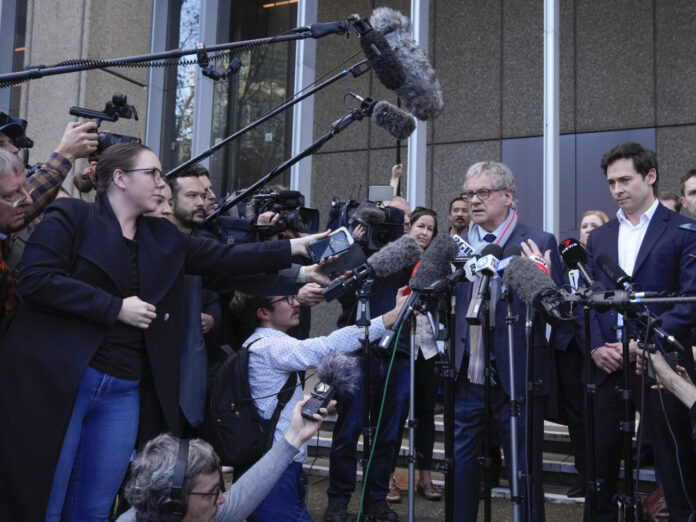CANBERRA (AFP)-By Dr Majid Khan-In a landmark defamation case, highly decorated Australian soldier Ben Roberts-Smith has been unsuccessful in his lawsuit against three newspapers that accused him of committing war crimes in Afghanistan. The publications were sued for multiple articles that also alleged Roberts-Smith bullied his peers and assaulted a woman with whom he was involved in an extramarital affair.
This is the first instance in which a court has evaluated war crimes allegations against Australian forces.
The newspapers accused Roberts-Smith for committing murders of civilians in Afghanistan but the soldier denied the allegations and filed a multi-million dollar defamation lawsuit in response.
However, after a two-year trial, Judge Anthony Vescano ruled that her paper proved the majority of her claims to be “substantially true,” and her lawsuit against newspapers rejected.
Defendants hailed the ruling as a major victory for press freedom in Australia, where defamation laws are often used to silence the press.
But journalist Nick Mackenzie said it was also a victory for the soldiers and Afghan victims who testified against his former comrades. “Today is a day of justice for the brave members of the SAS who stood up and told the truth that Ben Roberts-Smith was a war criminal, a bully and a liar.”
“Australia should be proud of these people in SAS. They are the SAS majority.”
“Today is Ben Roberts Smith’s day for a little justice for Afghan victims,” he added.
Before his trial, Perth-born Roberts Smith was Australia’s most famous and respected active duty soldier.
He was awarded Australia’s highest military award, the Victoria Cross, for “outstanding bravery” in seeking out a senior Taliban commander in Afghanistan.
He met Queen Elizabeth II and had his photograph hung in the hallowed halls of the Australian War Memorial in Canberra.
However, after careful reporting, The Age, The Sydney Morning Herald and The Canberra Times all claimed that the admired public figure was covering up a pattern of criminal and immoral conduct.
Newspapers say Roberts Smith threw an unarmed Afghan civilian off a cliff and ordered his men to shoot him dead. He is also said to have been involved in the shooting of a man with a prosthetic leg, after which he took it back to Australia and used it as a drinking vessel with his comrades.
The tall veteran has also been accused of domestic violence against a woman at a Canberra hotel, but judicial authorities have not proven the allegations.
The lawsuit is one of Australia’s longest-running defamation cases, with local media estimating legal costs at around US$16 million, making it also one of the most expensive cases.
Attorneys for the media defendants said they would seek “compensation costs against the plaintiffs” going forward.
Roberts-Smith’s defense was partly funded by the head of Seven West Media, a rival of the three newspapers. Roberts-Smith was photographed vacationing in Bali prior to the sentencing hearing and did not appear in court.
Australia has sent 39,000 troops to Afghanistan over two decades as part of a US-NATO-led operation against the Taliban and other extremists.
Once veterans returned home, their actions became the focus of justice.
A 2020 military investigation found that special forces had “unlawfully killed” 39 Afghan civilians and prisoners of war, uncovering allegations of summary executions, body counting races and torture by Australian forces.
Investigation finds Australian Special Forces ‘killed unarmed civilians’ in Afghanistan
It was a turning point for Australia, which has been more secretive than many other democracies, with the government silencing whistleblowers and prosecuting journalists involved in exposing wrongdoing.
Under mounting pressure, the government appointed a special counsel to investigate whether criminal charges should be filed against current and former soldiers.
The trial had already charged a man in his 40s with “war crimes and murder” charges, making him the first man in the Australian Defense Force to face such charges as a current or former Australian Defense Force man.
Local media reported that Roberts Smith was also among those under investigation by the Office of the Special Counsel.
Australia’s key ally, the United States, has warned that failure to prosecute human rights violations could result in a ban on military aid and cooperation with accused groups.






